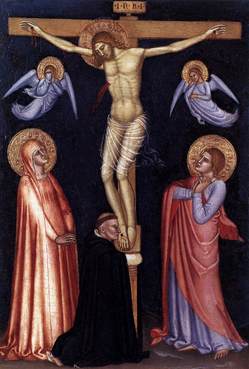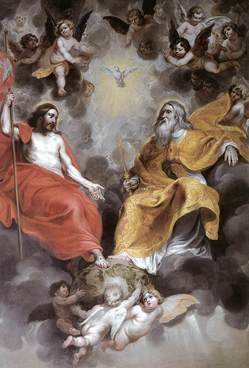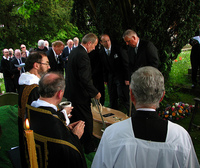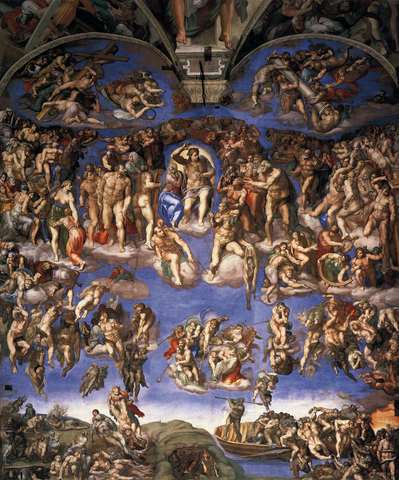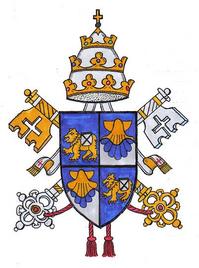Dear brothers and sisters!
Yesterday, on All Saints’ Day, we dwelt upon “the heavenly city, Jerusalem, our mother” (Preface of All Saints). And today, our souls turn again to these last things as we commemorate all the faithful departed, those “who have gone before us marked with the sign of faith and sleep in peace.” It’s very important for us Christians to live our relationship with the dead in the truth of faith, and to look at death and the afterlife in the
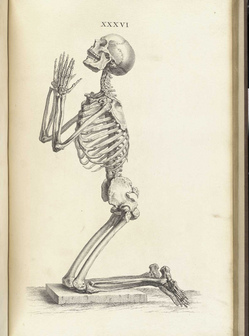 light of Revelation. Already the Apostle Paul, writing to the first communities, exhorted the faithful to “not be downhearted, like the others who have no hope.” “If in fact” he wrote, “we believe that Jesus died and rose, so also God, by means of Jesus, will gather up with him all those who have died” (1 Thes 4:13-14). It’s necessary even today to spread the message of the reality of death and eternal life — a reality particularly subject to superstitious and syncretic beliefs, for the Christian truth cannot risk itself to be mixed up with mythologies of various sorts.
light of Revelation. Already the Apostle Paul, writing to the first communities, exhorted the faithful to “not be downhearted, like the others who have no hope.” “If in fact” he wrote, “we believe that Jesus died and rose, so also God, by means of Jesus, will gather up with him all those who have died” (1 Thes 4:13-14). It’s necessary even today to spread the message of the reality of death and eternal life — a reality particularly subject to superstitious and syncretic beliefs, for the Christian truth cannot risk itself to be mixed up with mythologies of various sorts.
In my encyclical on Christian hope, I myself investigated the mystery of eternal life. I asked: even for the men and women of today, the Christian faith is a hope that can transform and sustain their lives? Even more radically: the men and women of our time likewise desire eternal life? Or maybe their earthly existence has become their only horizon? In reality, as St Augustine already observed, everyone wants the “blessed life,” that happiness. We don’t know what it is or what it’s like, but we feel ourselves attracted toward it. This is a universal hope, shared by people of all times and places. The expression “eternal life” gives a name to this insuppressible expectation: not a progression without end, but the immersion of oneself in the ocean of infinite love, where time, the beginning and end exist no more. A fullness of life and of joy: it’s this for which we hope and await from our being with Christ.
Let us today renew our hope in eternal life, one really drawn in the death and resurrection of Christ. “I am risen and now I am always with you,” the Lord tells us, and my hand sustains you. Wherever you might fall, you will fall in my hands and I will be present even at the gate of death. Where none can accompany you any longer and where you can bring nothing, there I await you to transform for you darkness into light. Christian hope is never something merely individual, it’s always a hope for others. Our lives are deeply linked, one to another, and the good and bad each one does always impacts the rest. So the prayer of a pilgrim soul in the world can help another soul that continues purifying itself after death. And for this, today the church invites us to pray for our beloved dead and to spend time at their tombs in the cemeteries. Mary, star of hope, make stronger and more authentic our faith in eternal life and sustain our prayer of suffrage for our departed brothers.
Benedictus XVI PP
